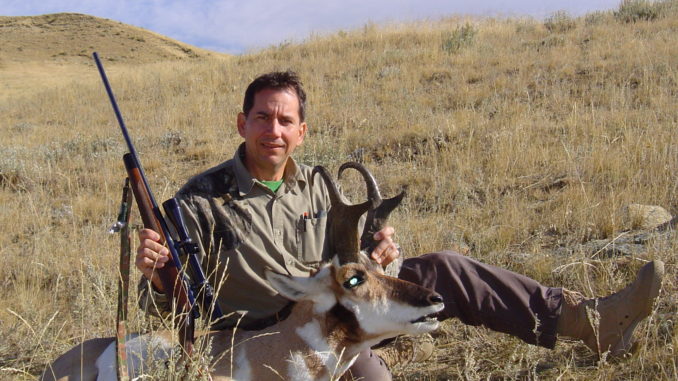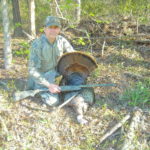
Retired agent reflects on career
After 34 years with LDWF’s Division of Law Enforcement, I retired as assistant chief in April 2011, and returned home to Gardner. My career with LDWF provided the opportunity to work with dedicated fish and wildlife enforcement and management professionals, elected and appointed officials and hunters and fishermen throughout Louisiana. I found many good friends along the way in each of these groups, chief among them wildlife enforcement agents here at home and throughout the country.
My personal work philosophy as a “boots-on-the-ground” field officer was to protect the resources, help honest people when possible, and be fair and impartial in enforcing the law. I kept those same principles in mind when I was placed on the headquarters staff in 1988 by newly appointed chief of law enforcement, Col. Winton Vidrine. One of his initiatives was a vigorous public information and media relations program, so I was assigned as the division’s public information officer. The job was to increase public awareness of fish and wildlife resource violations and efforts made by LDWF’s Enforcement Division to do something about it. In those days prosecution rates left a lot to be desired, and most people knew little about “game wardens” and conservation law enforcement.
The enforcement public information program meshed nicely with LDWF’s Information and Education Division, and hundreds of news releases, features and articles were published giving the public insight into Enforcement Division efforts and accomplishments. Louisiana Sportsman and other outdoor publications, local newspapers and other print media began to pick up those stories. Some readers may even remember “The Louisiana Conservationist TV Magazine,” a popular half-hour television show produced by LDWF staff.
The results were better reporting of violations, increased prosecution and a change in public attitude toward wildlife violations. Gradually, public perception of poaching and illegal harvest changed. People began to have less tolerance for “outdoor outlaws.” It just wasn’t funny anymore when people began to realize these were not victimless crimes after all. Law-abiding outdoor user groups and fish and wildlife were and are the victims. District attorneys and judges began to make it clear they didn’t think it was funny either, and started prosecuting more cases and handing down stiffer penalties.
The Enforcement Division Public Information Section continues doing a good job today with a full-time staff writer, lightning-speed media technology to get the story out and plenty to report from wildlife agents in the woods and on the water.
But as an avid hunter and fisherman myself, every opportunity to get in the woods to hunt or on the lake for some fishing with friends and family is high priority. And as those gray hairs began to appear with alarming frequency, it became more difficult to sit in the office and look out the window as another perfect fall morning slipped away — particularly when your retired friends called to say how good the deer were moving and what fun they were having.
After much discussion and planning, my wife Mitzi and I decided to retire, let the Baton Rouge apartment go and return home to Gardner to start construction on that new home we had been planning for a while.
It is quite a change in focus and I certainly miss many good friends and co-workers at LDWF, the other state and federal agencies and outdoor groups with whom it was such a privilege to work. It is also nice to receive the occasional phone call or e-mail from friends and co-workers asking for an opinion on an issue or a tough case or just to see how things are going.
It was a particularly pleasant surprise when I received an early November e-mail from Louisiana Sportsman Editor Todd Masson, who had an interesting proposal for a column about fish and wildlife enforcement in Louisiana. Subjects for the column could be recent arrests, events from my career, changes in laws and regulations (both good and bad) and how changes in the law may benefit wildlife resources or make the agent’s job tougher or easier. We hope these topics will be interesting and thought-provoking for readers.
New laws and regulations, and changes to existing statutes, are generated during every legislative session and from the Louisiana Wildlife and Fisheries Commission. Some are the result of requests from LDWF staff for needed updates to close loopholes or address new or different needs in resource protection. Others result from public requests for changes to or elimination of current laws and regulations. Many are good, but some are controversial and not always in the best interest of fish and wildlife. Poor or loosely worded language in legislation can render a law unenforceable. Well-written laws can be iron clad and effectively enforced and provide the desired effect of sound protection and wise utilization of the resource.
In offerings following this introductory column, we will attempt to provide the reader with a better understanding of how fish and wildlife regulations are enforced and prosecuted and offer some commentary on changes to the law that make that job tougher or easier.




